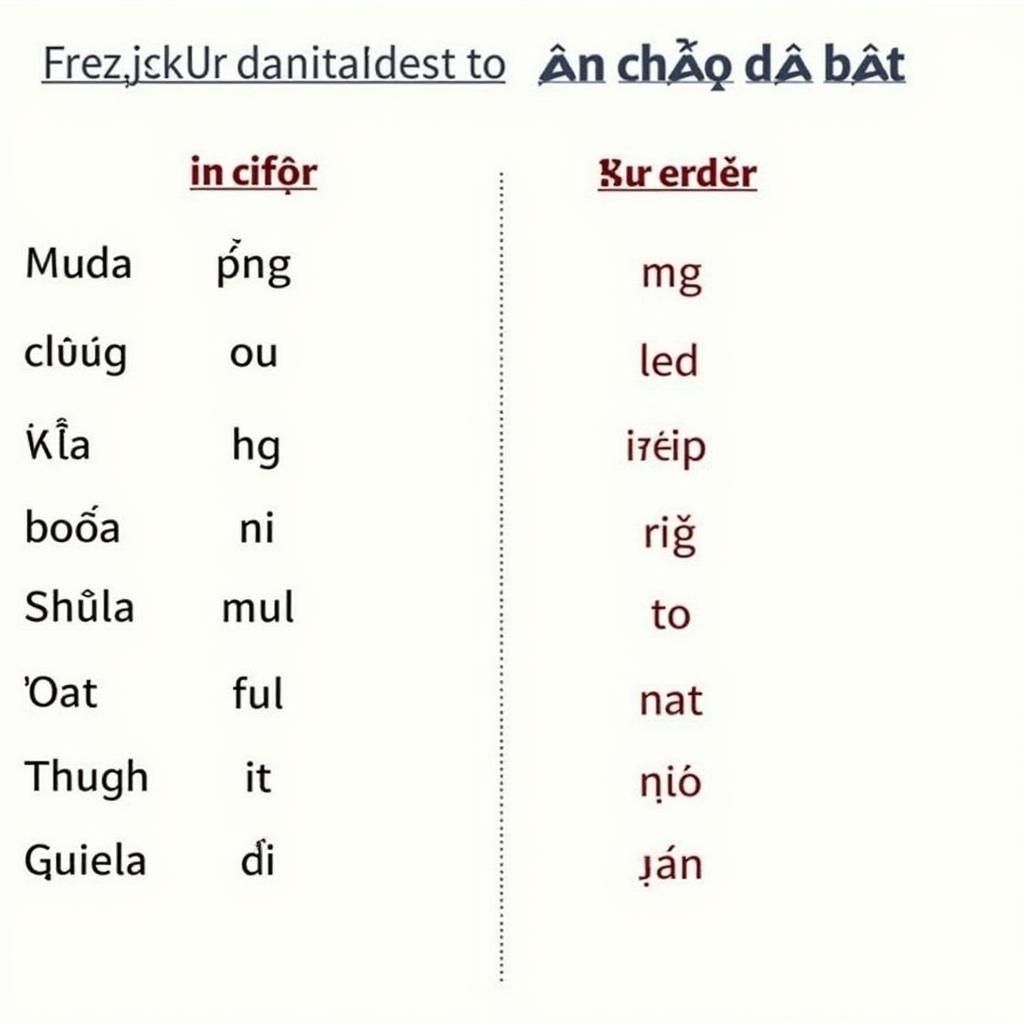The Vietnamese idiom “ăn cháo đá bát” literally translates to “eat the porridge and then throw the bowl.” This seemingly simple phrase carries a deeper cultural meaning that often gets lost in direct translation. It describes the act of being ungrateful and disloyal, especially towards someone who has helped you in the past. Think of it as biting the hand that feeds you.
The Nuances of “Ăn Cháo Đá Bát”
While the literal translation provides a basic understanding, it doesn’t fully capture the cultural weight of “ăn cháo đá bát.” It’s more than just ingratitude; it implies a betrayal of trust and a lack of respect for the person who provided the “porridge,” or assistance. This idiom is deeply rooted in Vietnamese culture, emphasizing the importance of reciprocity and loyalty.
Why is “Ăn Cháo Đá Bát” Important in Vietnamese Culture?
Vietnamese society places a high value on respecting elders and those who offer support. “Ăn cháo đá bát” represents a severe breach of this cultural norm. It’s a strong condemnation of disloyal behavior and serves as a warning against such actions.
“Ăn cháo đá bát” can be used in various contexts, from personal relationships to professional settings. For example, an employee who leaves a company after receiving extensive training and support might be accused of “ăn cháo đá bát.” Similarly, a friend who betrays another after receiving years of help and kindness could also be described with this idiom.
 Hình ảnh minh họa hành vi ăn cháo đá bát
Hình ảnh minh họa hành vi ăn cháo đá bát
Finding an English Equivalent for “Ăn Cháo Đá Bát”
Directly translating “ăn cháo đá bát” into English doesn’t fully convey its cultural significance. Several English expressions capture similar sentiments, although none are perfect equivalents. Some options include:
- Biting the hand that feeds you: This is perhaps the closest English idiom, highlighting the act of harming someone who has helped you.
- Being ungrateful: A general term for lacking appreciation for kindness or assistance.
- Backstabbing: This emphasizes the betrayal aspect of “ăn cháo đá bát.”
- Being a traitor: A stronger term implying a serious breach of trust and loyalty.
Choosing the best English equivalent depends on the specific context. For example, “biting the hand that feeds you” might be suitable for a professional context, while “backstabbing” might be more appropriate for a personal betrayal.
 So sánh các từ tiếng Anh tương đương với ăn cháo đá bát
So sánh các từ tiếng Anh tương đương với ăn cháo đá bát
How to Use “Ăn Cháo Đá Bát” and its English Equivalents
Understanding the cultural context is crucial when using “ăn cháo đá bát” or its English equivalents. Using these expressions incorrectly can lead to miscommunication or even offense. It’s essential to consider the severity of the disloyal act and the relationship between the individuals involved.
“In Vietnamese culture, loyalty is highly valued. Using “ăn cháo đá bát” highlights a serious transgression against this value,” says Dr. Nguyen Van Minh, a Vietnamese cultural expert.
Beyond Literal Translation: Understanding Cultural Nuances
Language is more than just words; it’s a reflection of culture. Idioms like “ăn cháo đá bát” provide a glimpse into the values and beliefs of a society. While finding a perfect equivalent in another language can be challenging, understanding the underlying meaning is key to effective communication.
 Giao tiếp đa văn hóa và hiểu ý nghĩa của ăn cháo đá bát
Giao tiếp đa văn hóa và hiểu ý nghĩa của ăn cháo đá bát
Conclusion: More Than Just Words
“Ăn cháo đá bát” is more than just a Vietnamese idiom; it’s a reflection of the importance of loyalty and reciprocity in Vietnamese culture. While English equivalents exist, understanding the cultural context is essential for accurate interpretation and usage. By appreciating the nuances of language, we can gain a deeper understanding of different cultures and communicate more effectively.
FAQ
- What is the literal translation of “ăn cháo đá bát”? (Eat the porridge and then throw the bowl)
- What does “ăn cháo đá bát” mean figuratively? (Being ungrateful and disloyal)
- What are some English equivalents for “ăn cháo đá bát”? (Biting the hand that feeds you, being ungrateful, backstabbing)
- Why is “ăn cháo đá bát” important in Vietnamese culture? (It reflects the importance of loyalty and reciprocity)
- How can I use “ăn cháo đá bát” and its English equivalents correctly? (Consider the context and the relationship between the individuals involved)
- What is the key to understanding idioms like “ăn cháo đá bát”? (Understanding the cultural context)
- Why is understanding cultural nuances important in communication? (It allows for more effective and respectful interaction)
Other Related Articles on AI Bóng Đá:
- Exploring Vietnamese Football Culture
- Common Vietnamese Football Phrases
Need further assistance? Contact us at Phone: 0372999888, Email: aibongda@gmail.com, or visit our office at 236 Cầu Giấy, Hà Nội. Our customer service team is available 24/7.